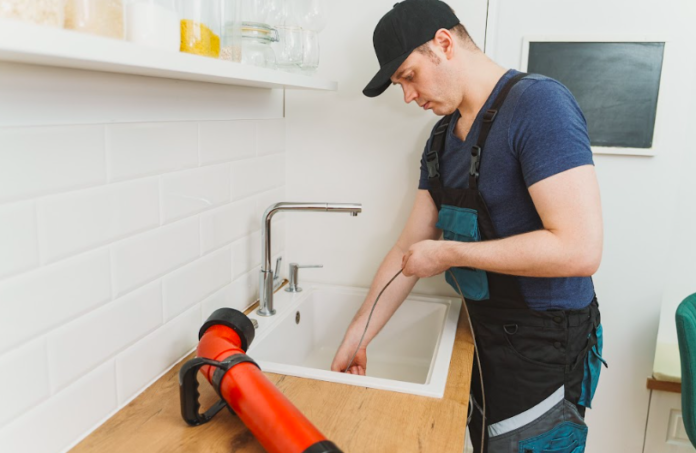A blocked drain can prevent the unrestricted passing of water and waste in your plumbing system – leading to a filth build-up that can be challenging to remove from your toilets and sinks. Thankfully, you can unblock your drains by yourself and save on the costs of hiring a professional drain expert in Australia. This post discusses the various plausible techniques to help unclog your blocked drains. Continue reading to learn more.
- Use A Plunger
A plunger is said to be the most accessible and simplest way to unblock a clogged drain. It exerts pulsed pressure through the drainage canal, and this method can work on bathtub drains, showers, and sinks.
Below are the steps for using a plunger to unclog a drain:
- Place the plunger on the drain opening: Place the plunger’s rubber cup on the drain’s opening and cover it with water. Ensure that the water covers the plunger to create an airtight seal and suction seal. Also, make sure that the plunger covers the entire drain’s opening.
- Press down hard and pump the plunger: Ensure that the plunger creates an airtight seal before pumping up and down vigorously. The movements should be quick and forceful to create a vacuum effect that could effectively dislodge the dirt. Repeat until the water starts flowing freely again.
Sometimes, using a plunger may not be sufficient in clearing a blocked drain. Don’t hesitate to contact a professional that can perform drain cleaning in Sydney or where you’re from. These service providers typically employ specialized tools and chemicals that can readily clear a clogged drain with little to no hitches at all.
- Use Baking Soda And Vinegar
Baking soda and vinegar remove stains on carpets and clothes and can help unclog a drain. These two substances react to create a fizzing and bubbling action that breaks down and loosens materials that block the drain. Moreover, baking soda can naturally deodorize and eliminate unpleasant odors that build up in clogged drains.
Below are points on how to use baking soda and vinegar to unclog drains:
- Remove any standing water: Remove any present standing water from your sink or bathtub that can prevent the baking soda and vinegar solution from doing its job.
- Pour baking soda: The baking soda can be in its crystalline form when pouring it into the drain. You can spread and evenly distribute it while pouring.
- Pour a cup of vinegar: You may notice some fizzing and bubbling after pouring the white vinegar into the drain. That means the two substances are reacting with each other and the mixture is working. You can cover the drain with a stopper to prevent the mixture from escaping and overflowing from the drain. Let the mixture sit for 30 minutes to loosen the blockage.
- Flush with hot water: Remove the cover and pour hot water into the drain to remove the remaining debris.
If the method above doesn’t offer the desired results, your drain pipe is old and there’s corrosion present that prevents the effective removal of the blockage. Luckily, an expert and experienced drain relining company can carry out professional drain relining in order to effectively deal with your blockage woes.
- Pour Boiling Water
You can jump straight to pouring hot water in your drain to dislodge dirt and unclog your drain. It’s a relatively effective technique that works on drains with grease and soap blockages. And it works on other materials, including hair strands, food particles, and others. However, please note that this method may not be effective for tougher drain clogs and that you may have to use other more intrusive options like plungers and the like.
- Try A Drain Snake
A drain snake is a flexible tool you can insert into a clogged drain and dislodge debris and blockage material to unblock it.
You can insert the snake into the drain and turn the handle until you feel some resistance. Try pushing and pulling the snake until the blockage becomes loose. Your drain snake should be sturdy enough to dislodge material and not too frail to break. Pick the best drain snake for use to make the unclogging process more effective and hassle-free.
Conclusion
Clogged drains are a headache, indeed. If not dealt with sooner, they can cause pipe deterioration, poor sanitation, and many more. Fortunately, handling blocked drains can be done all on your own. Check out the points featured above to help you in dealing with blocked drains at home. If you’ve tried out all of them and nothing seems to work, don’t hesitate to reach out to an experienced expert plumber near you for professional help.











